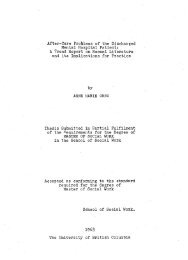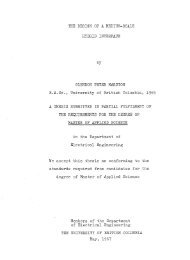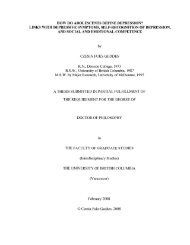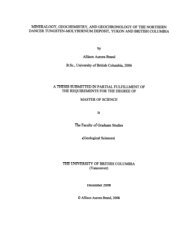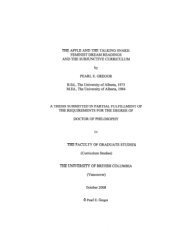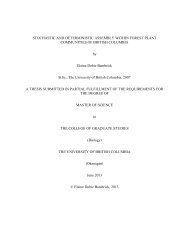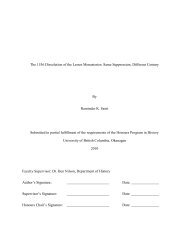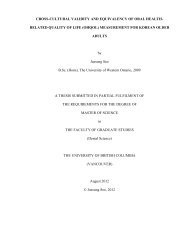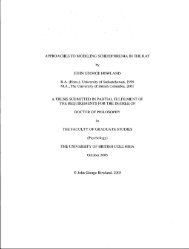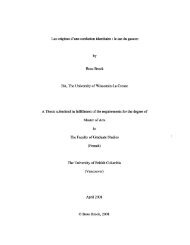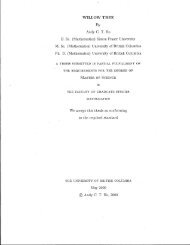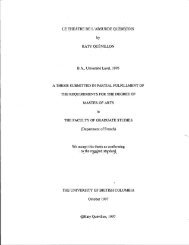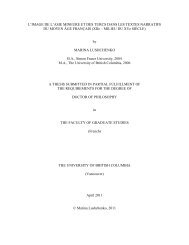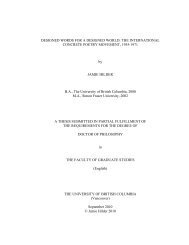A STUDY OF THE THEORY OF APPRAISAL FOR SELECTION By ...
A STUDY OF THE THEORY OF APPRAISAL FOR SELECTION By ...
A STUDY OF THE THEORY OF APPRAISAL FOR SELECTION By ...
Create successful ePaper yourself
Turn your PDF publications into a flip-book with our unique Google optimized e-Paper software.
the troublesome question of the relativity of value.<br />
Examples of the exponential expansion of records can be<br />
seen in a 1976 statistical report which notes that the United<br />
States held 930,000 cubic metres of archives with an annual<br />
growth rate of 165,000 cubic metres, and France held 1,370,000<br />
shelf metres with an annual growth rate of 51,000 metres.2 Many<br />
have traced the cause of the hypertrophy of records to the rapid<br />
expansion of government that now influences and documents many<br />
aspects of modern life, and to society's technological capability<br />
of copying documents with ease. Both trends have resulted in the<br />
proliferation of files that no longer are limited to recorded<br />
transactions, but also include copies of peripheral records and<br />
material that can be used for general information and reference.<br />
The pressure to destroy records in order to control the mass of<br />
information, while maintaining fiscal and legal responsibility,<br />
is on a collision course with an increasing pressure from<br />
researchers for broader public access to information. Appraisal<br />
literature regularly cites disturbed or outraged researchers who<br />
charge archivists with the irresponsible destruction of<br />
information. The problems posed by the quantity of records and<br />
public demands for access are, in essence, practical problems<br />
that need to be addressed through the development of public<br />
policy and careful management of resources.<br />
Unlike the preceding practical issues, the notion of value<br />
2 Felix Hull, The Use of Sampling Techniques in the<br />
Retention of Records: A RAPW Study with Guidelines (Paris:<br />
UNESCO, 1981), 2.<br />
2



